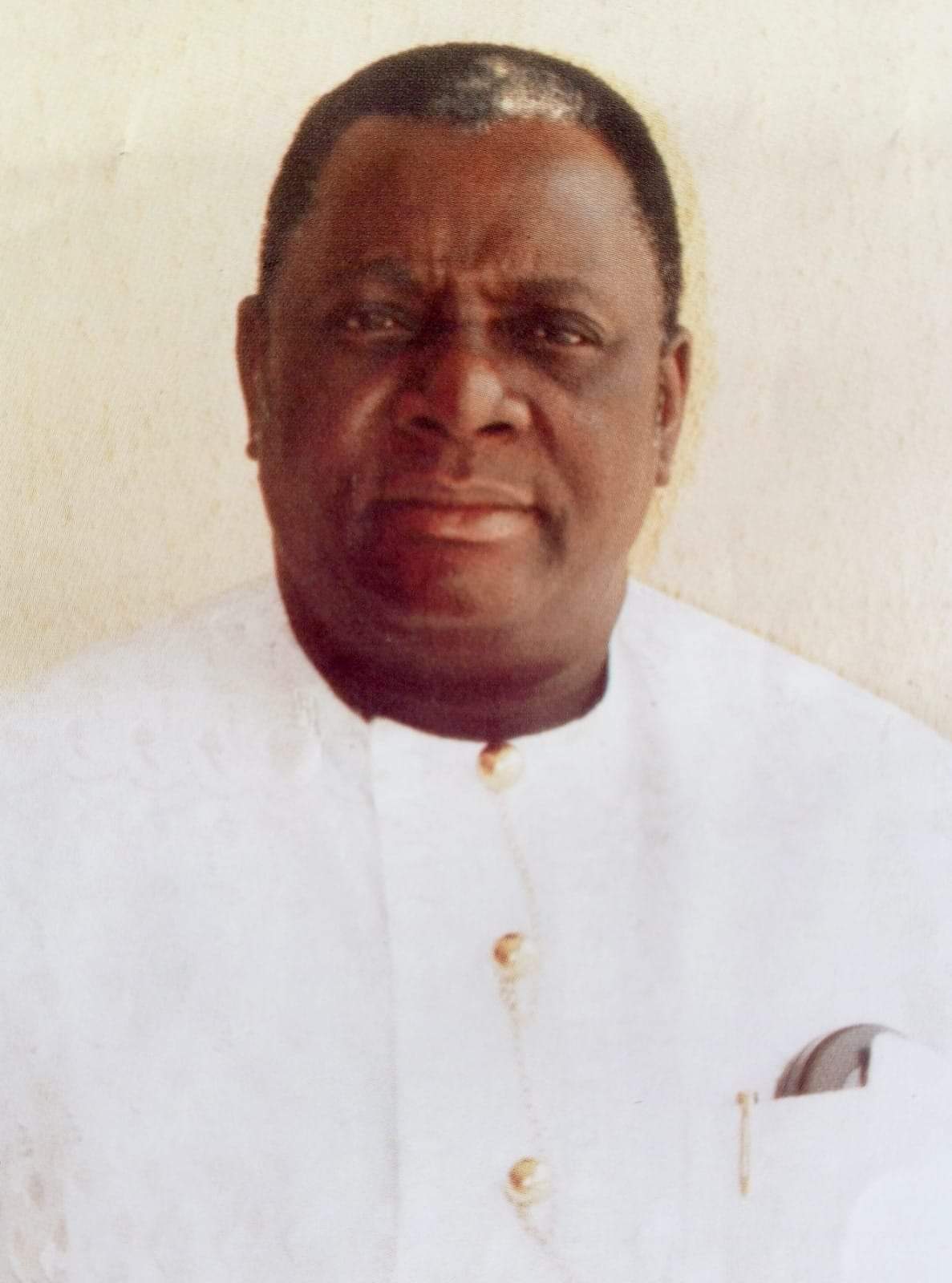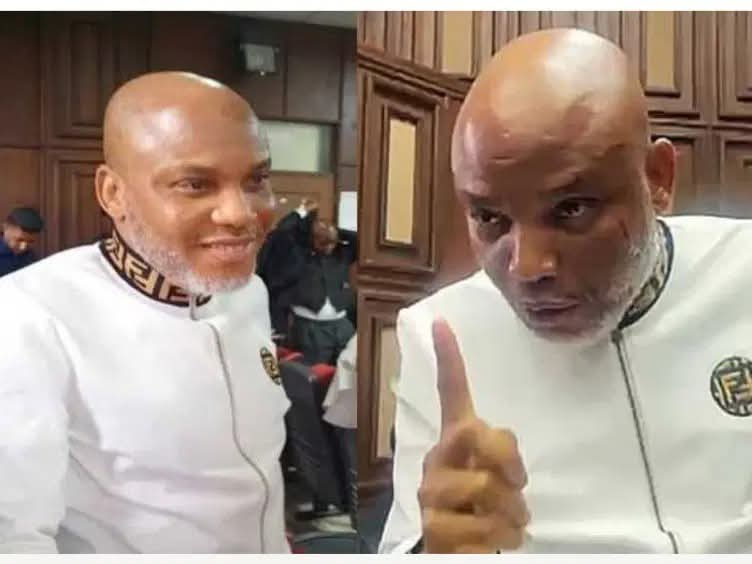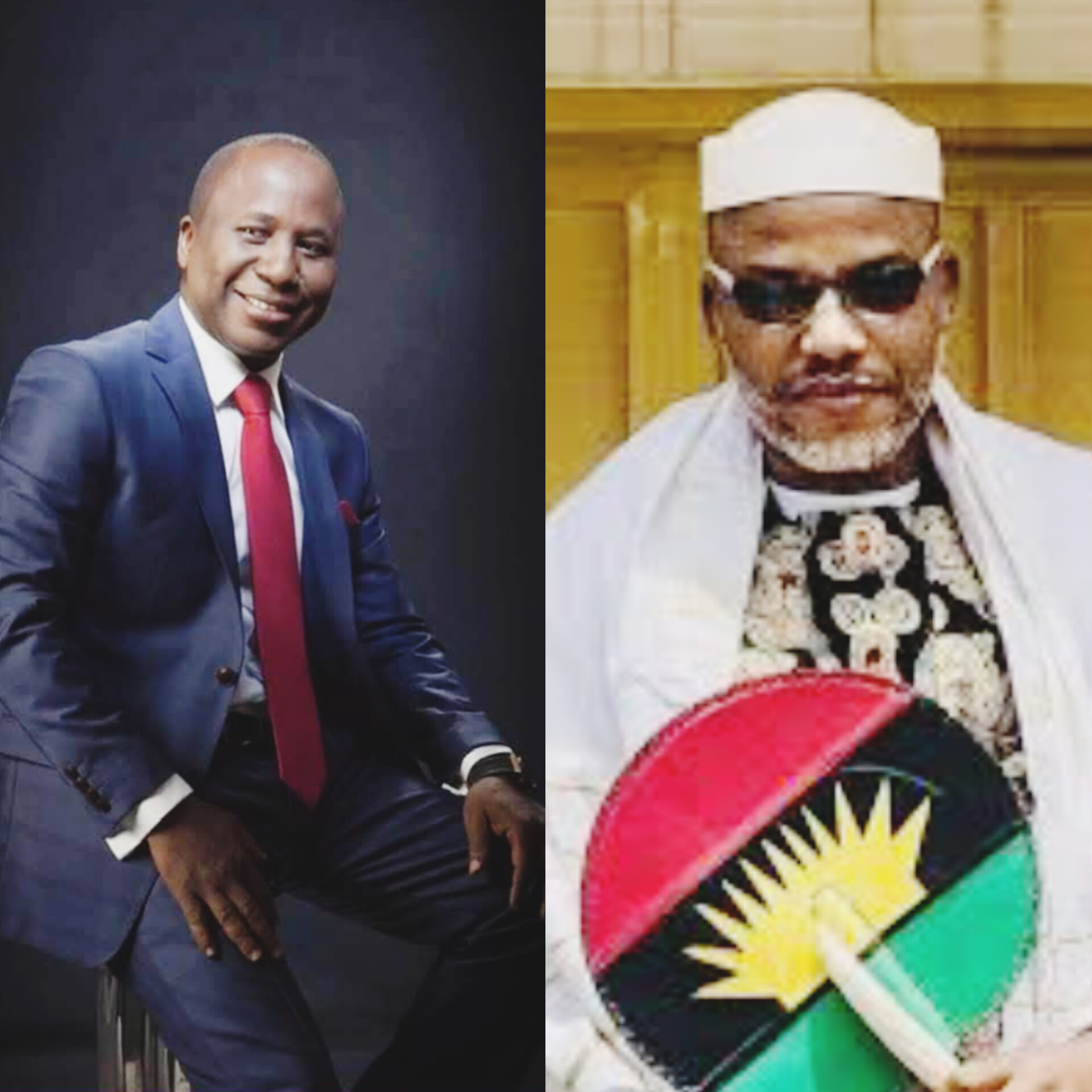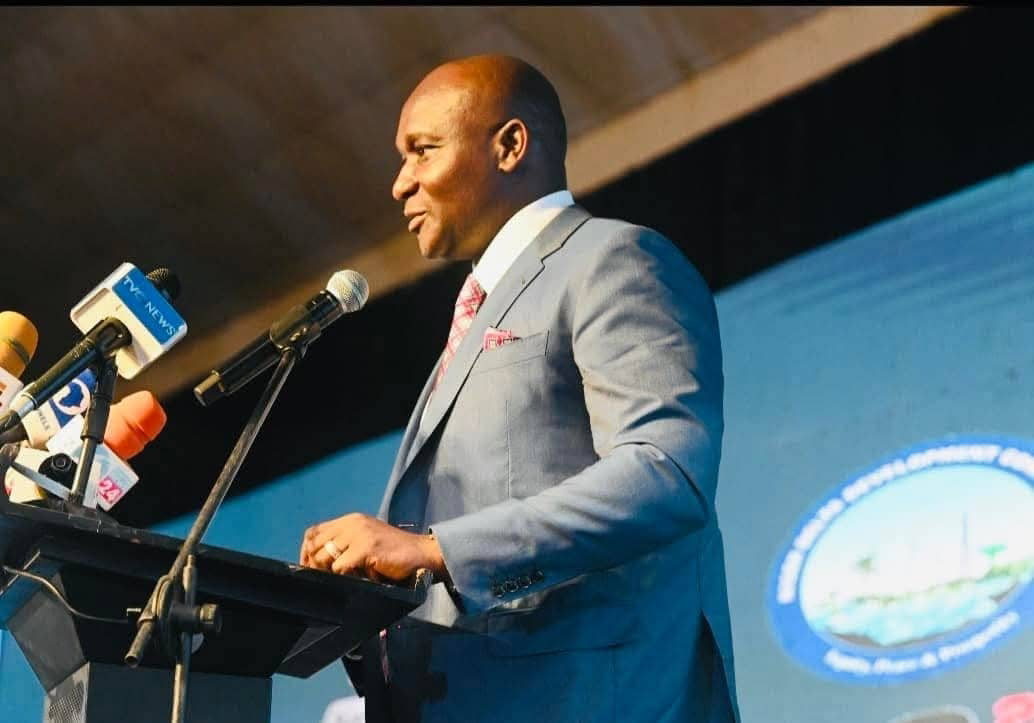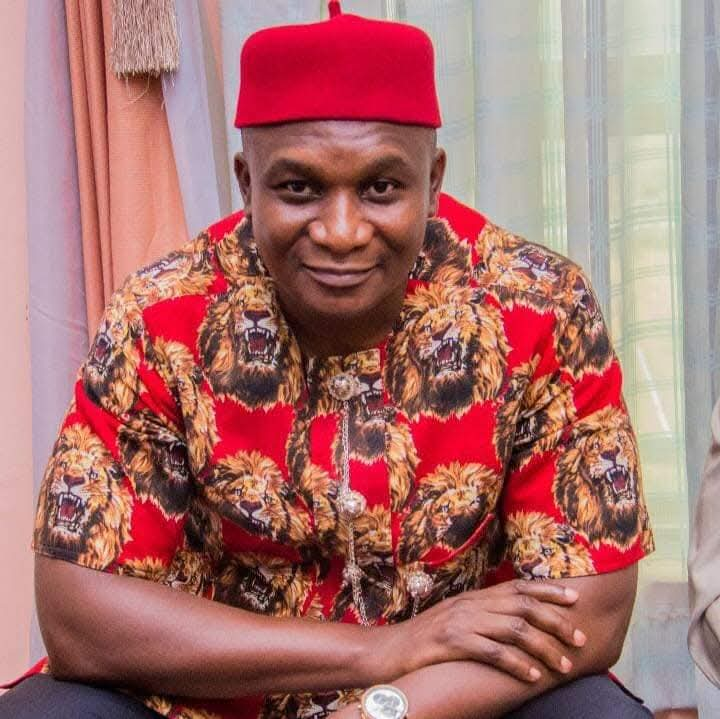By Pope Pen
Thank you for reading this post, don't forget to subscribe!DEAR Governor Douye Diri, allow me to extend my personal condolences to you over the passing of Chief Thompson Okorotie, arguably one of the most mercurial politicians to have emerged from Bayelsa State. He could jolly well be called a founding father of the state because he was at every point of progress with particular regard to the Bayelsa creation story. He could be called a walking encyclopaedia on Bayelsa.

He was, in fact, the man who claimed to have coined the name Bayelsa. Whenever he felt like it, Okorotie would readily tell you that the state was originally conceived as Abayelsa, comprising Ahoada, Balga, Yelga and Salga, representing Brass, Yenagoa and Sagbama, being administrative districts in the old Rivers State. In the end, Ahoada fell into Rivers in the state creation tussle, and Bayelsa came into being, merging the first syllables of Balga, Yelga and Salga.
Okorotie knew the story of Bayelsa like the back of his hand, as the Americans would say. He was a man whose intelligence I respect. His input to any debate could not be dismissed. Okorotie and I were next door neighbours, even in America. But it all started in Yenagoa. His office was right after mine in the Bureau Base of the Governor’s office, as it used to be known in times past. I was Speech Writer to the Governor, and he was Political Adviser to the Governor. We both had direct access to Alamieyeseigha who occupied the wide, gubernatorial space on the floor above our heads.
As a matter of fact, Okorotie was the first government official who took me to see the Governor inside that capacious office when I reported for duty as speech writer in April 2000. He was short of breath by the time we climbed up to the landing, and he was still panting when he introduced me to Alamieyeseigha. The Governor was flipping through a file and stopped midway to listen to him. Alamieyeseigha welcomed me with a nod, and told me to start work at once.
Okorotie was to assess my first speech before taking it up to Alamieyeseigha. The concern of the Governor then was the appellation attached to Bayelsa as the pride of the nation. Alamieyeseigha said he was not comfortable with the word pride. He had done some thinking and some research and settled, instead, for the glory of all lands. This had biblical backing. The expression occurs in the scriptures, and it defined his glorious vision for Bayelsa.
That was the subject of my first test as speech writer. I battled with the script for the better part of the night and submitted a three-page copy in the morning. Okorotie read through it in one flush, and was visibly happy when he took me back to see Alamieyeseigha. Not one fullstop was removed from the copy. The Governor delivered that speech with great ease and confidence, and from that day I earned my respect in Okorotie’s eyes. He admitted that he didn’t have to supervise my work, and from then on, I took my speeches directly to the Governor.
Alamieyeseigha respected intelligence a great deal. As he often said, he was always ready to bow to superior argument, and Okorotie was often there with superior arguments that left Alamieyeseigha with no choice than to approve. No matter how well thought-out a policy position may be, Okorotie always had something to add, a clause to amend, an addendum to make, another clause to qualify. I came to know this from the day I first heard him speak with that fluent, polished grasp of the English language, and a stentorian voice to carry his message.
Our first major collaboration came when Alamieyeseigha had to give his first year testimonial address to the Bayelsa State House of Assembly. The Governor’s private secretary had worked long hours and closed for the day. Alamieyeseigha wondered who would handle the desk top computer. He was delighted to know that I could type.
This was urgent. Flanked on both sides by Alamieyeseigha and Okorotie inside the Governor’s private office, I took my place before the desk top and tinkered with the content of the speech into the early hours of the following morning, each man making their contributions as the script unfolded before their eyes, my fingers clattering away at the keyboard, all my sensors as an editor of many years standing on show.
I tend to think that every speech comes with its own challenges. Surely, this was one. Alamieyeseigha wanted to justify every aspect of the budget as it affected every sector of the Bayelsa economy. No matter how much I tried cutting down, more material came into view, thanks to Okorotie. By the time we were done, Alamieyeseigha confirmed my competence, and recorded his first major landmark speech, as long as it was. That work scenario was repeated when Alamieyeseigha had to play host to visiting Governors from the Niger Delta for the first time.
Okorotie and I also worked like a tag team especially when Alamieyeseigha had to give a lecture, at home or abroad. It was Okorotie’s idea that Alamieyeseigha should lead a delegation to America when, in 2001, two years into his first tenure as Governor, a harshly-worded letter came from sons and daughters of Bayelsa in America, expressing their anxiety over what they called the slow pace of development in the young state. Alamieyeseigha felt sure that, given the truly limited resources at hand, he had done something significant in every sector of the economy.
The federal allocation to Bayelsa at that time was far below one billion naira, and he was sure to perform better in the days to come when the commonwealth improved. Alamieyeseigha thought it might be a good idea to invite his critics to come over from America and see things for themselves in Bayelsa. But then, Okorotie thought otherwise. It would not be cost effective for government to host a dozen Bayelsans from Diaspora in Yenagoa, and pay their way back.
It was better, he said, for a government delegation to leave Bayelsa and interact with our brethren abroad, as a mark of respect for them and whatever ideas they may hold about good governance. That was how a delegation comprising members from the three arms of government was drawn up. My duty was to write the speech that Alamieyeseigha would read at the forum, and that was how I found my name on the list.
On April 2, 2002, we arrived at Hartfield airport in Atlanta, Georgia. It was my very first trip to America. Okorotie and I stayed in the same hotel, sharing rooms next door. Even in our excursion through Atlanta, we sat next to each other in the vehicle, and had so much to chat about. He was so close to me that, even as I look through my photo album, I see him standing wherever I stood to take a picture.
He stood beside me when we visited the imposing CNN plaza, and posed against the huge red letters of the cable network in the foreground of the building. In like manner, we were beside each other when we visited the humble home of Martin Luther King Jr, and posed for a photograph beside the eternal flame lit in honour of the civil rights leader at the memorial park named after him.
It will be insincere on my part to say that Okorotie and I were jolly good friends all the way. We had severe misunderstandings on at least two occasions, first when he appropriated my portion as member of a committee in charge of the birthday anniversary of the Governor, and two, when he told Alamieyeseigha that I was acting as a spy for my cousin, Chief Walter Feghabo-Amain, in the days when the former military administrator was gunning for the governorship of Bayelsa State under a minority party.
Alamieyeseigha had cause to chastise Okorotie on both occasions when the truth was established, and that was the first time I heard the Governor pointedly call his political adviser by a praise-name I never knew.
“Okublacki, I know you cut like a double-edged sword,” said Alamieyeseigha, “but leave this boy alone.”
Okorotie had no choice than to relent. Neither of these incidents did anything to diminish my wholesome respect for Okorotie. Long before I met him, in fact, my father had drawn my attention to the initials TKO on the popular news of the day. I used to wonder why someone would go by initials which clearly stand for Technical Knock Out. Was the fellow a boxer, or something? My father would chuckle to himself, and reel out Okorotie’s dossier. I have since come to know that, in this particular case, TKO stands for Thompson Kiatonye Omokobia.
Born to a Christian family on March 23, 1945, at Ekeremor in Ekeremor local government area of present day Bayelsa State, TKO Okorotie began to learn survival lessons in life when, at the tender age of nine, he lost his beloved mother, Mrs Whiskey Fyneface Okorotie. Like most children his age, Thompson was admitted at St. Patrick’s Primary School, Isampou, in 1952, for his early classes. His brilliance was on show in quick time, and he had the rare distinction of earning a double promotion at the school ahead of his peers.
After primary school, Thompson Okorotie proceeded to Bomadi where he attended Secondary Modern School from 1957 to 1959. Fired by the zeal and enthusiasm to improve his lot in life, and given the firm promise of college sponsorship by Chief Douglas Okorotie, his uncle who lived in Lagos at the time, Thompson packed his bags and headed for the capital city of the day. Armed with the address of his uncle, the fifteen-year old boy left Isampou for the big city of Lagos. He was able to find his way to Ijeh village near Obalende where his uncle lived.
Fascinated by the cosmopolitan range of Lagos, its upbeat tempo and its bright street lights, and having witnessed Nigeria’s Independence Day celebrations at first-hand on October 1, 1960, at Race Course, now Tafawa Balewa Square, Thompson Okorotie began to dream big. But before long, Thompson’s uncle deflated the boy’s high expectations when he told Thompson that he could not send him to college as earlier promised. The apparent reason was that Thompson’s sister was already in college on the uncle’s bill, and the lean finances could not cover both of them at the same time.
TKO was virtually knocked out by the declaration. Downcast though he was, he had no choice in the matter. Life had to go on. He promptly enrolled in a commercial college along Pike Street, Yaba, for one year. That was how he met Zebulon Abule, a fellow student from Ijaw land, and they became close friends. On account of his outstanding brilliance, the young Okorotie was fondly called “Tommy The Bright.”
True to his nickname, Thompson completed his academic programme at the college in a record time of nine months. Even so, with no prospect of attending a regular school, Okorotie decided to get a paying job. He would simply earn money, buy books and improve himself by dint of voracious private reading.
In 1966, Okorotie was employed as executive secretary of an American non-governmental organization, Operation Crossroads Africa. The following year, out of love for the printed word, he ventured into journalism when he got a place as a correspondent for Newsreel at the Nigerian Broadcasting Corporation, NBC, now FRCN. From there, he became a stringer for Voice Of America, VOA, and later a public relations representative in Nigeria for Ford Motor Company, Brentwood, Essex England.
Okorotie’s profile stepped up one more notch on the employment ladder when, in 1972, he was engaged as the group commercial manager of OGT group of companies, Lagos. The managing director was so impressed with TKO’s dedication to duty, his readiness to volunteer ideas, and his untiring efforts, that he was commissioned to establish the London branch of OGT group of companies at 40 Oxford Street, London. After six months of managing the place, Thompson Okorotie returned to Nigeria.
Three years later, he was on the move again, this time to R.T. Briscoe Nigeria Limited which offered him the job of market research officer. Before long, he moved on to become the sales manager for Toyota, and was instrumental to the establishment of Toyota Dyna Assembly Plant in Warri, and the Vesper Motorcycle Assembly plant in Kano and Lagos.
In 1978, Okorotie took interest in politics when the ban on political activities was lifted. He registered with the National Party of Nigeria, NPN, in Lagos and subsequently became its mobilization officer. As elections drew near, the people of Ekeremor sent a delegation led by one Wilson Dauyegha of blessed memory to appeal to Okorotie to come back home and contest the House of Assembly elections under the platform of the NPN. He had been nominated in absentia.
Unknown to him, Chief Edwin Clark had recommended Okorotie to the Ekeremor people as a patriotic young man who could work for the development of the Izon nation. Without securing his consent and approval, the late Chief Asiye Ebakpa paid two hundred naira for Okorotie’s election nomination form. In short, he was swayed by close friends and associates to make a foray into the game of politics, in spite of the initial objection by Okorotie’s wife. For instance, Chief M.K.O Abiola, one of Okorotie’s close friends, donated a five thousand naira fortune toward his elections.
Back to his roots in Ekeremor, Thompson Okorotie and his followers began a rigorous campaign from hamlet to hamlet, village to village, town after town. In the end, TKO won the election into the Rivers State House of Assembly, and became a household name when he was elected as the Majority Chief Whip. He was also Chairman, House Committee on Education, and member, Standing Committee on Commerce and Industry.
It is on record that Chief Thompson Okorotie played a significant role alongside Chief Melford Okilo, Governor of Rivers State at the time, in the establishment of the Rivers State University of Science and Technology, the first of its kind in Nigeria. Okorotie was equally instrumental to the dramatic opening of new secondary schools in Ndoro, Peretorugbene, Aleibiri and Agge. In fact, he secured the approval for the establishment of a secondary school and a campus of COE at Tamugbene. The buildings were still under construction when the army struck.
With Chief Francis Endeley as Commissioner for Works, it was easy for Okorotie to work hand in glove with him for the establishment of secondary schools at Ofoni, Angalabiri and Ebedebiri. The duo of Okorotie and Endeley, in fact, were responsible for the shore protection project at Sagbama town. If not for these two dedicated sons of Ekeremor and Sagbama, there would have been no Sagbama as we know it today.
When the army struck, the political aspirations of Chief Thompson Okorotie went into limbo, but his creativity was activated in other spheres of life. He established one of the earliest advertising companies, De-Pioneer Business Systems Limited, and a Centre For Legislative Studies in Port Harcourt which later became the Institute For Democratic Studies.
When the Third Republic began unfolding with its convoluted transition programme, Chief Thompson Okorotie pitched tent with the National Republican Convention, NRC, and became an adviser to Dr Hameed Kusamotu, the then national chairman of the party. During the presidential campaigns, Okorotie became campaign director to Chief Pere Ajuwa, a leading contender for the presidency at that time. Okorotie’s strategies were cocksure enough to establish Pere Ajuwa as runner–up to Alhaji Bashir Tofa in the keenly contested presidential primaries in Port Harcourt.
The results of the general election were annulled by military fiat, and the transition programme went nowhere. Okorotie went back to tend his business ventures. When the Fourth Republic came underway, Okorotie initiated the Committee for Good Governance, drafted Chief D.S.P Alamieyeseigha into politics, and persuaded him to run for the office of Governor of Bayelsa State. It took Alamieyeseigha a few days in office to appoint Chief T.K.O Okorotie as his special adviser on Political Affairs.
Okorotie, in fact, was like a trouble-shooter in government. He was called upon to straighten every wrinkle and every rough patch in governance. For this reason, Okorotie was appointed at various times as Governor’s Special Representative in Abuja, Overseer of the Ministry Information, and Special Adviser on Oil and Gas to the Governor.
His clout in Bayelsa politics was reckoned with all round, which explains why the political kingpin from Ekeremor was appointed Special Adviser on Political Affairs for a record three times. From the days of Alamieyeseigha, Chief Thompson Okorotie proved to be a recurring decimal in the political equation of Bayelsa State. He remained relevant through the governments of Goodluck Jonathan, Henry Seriake Dickson and Douye Diri.
Chief Thompson Kiatonye Omokobia Okorotie was married to Mrs Christiana Okorotie, and the union was blessed with fourteen children, eight girls, and six boys. By and large, Okorotie was a self-made man. Over the years, he was able to meet the academic targets he had set for himself. He acquired a post graduate diploma in Management, and a Masters degree in Public Administration from the University of Port Harcourt. Apart from a certificate in Marketing Management in his portfolio, he also earned his exalted place as a Fellow of the Nigerian Institute of Public Relations, NIPR.
Chief Thompson Okublackie Okorotie passed away on Friday September 29, 2023, in Istanbul, Turkey, in the course of a prolonged affliction. He was an asset to the Ijaw nation, and it is regrettable to speak of him in the past. He understood the Nigerian political equation to the hilt, and could be relied upon to give dependable political strategies in the struggle for self-determination among the oil-producing communities of the Niger Delta swamp. For anyone who realized his worth, he will be missed.Kindly share
